
This article was updated on February 2nd, 2024
Every day I treat at least 3 to 5 dogs who are having diarrhea. There are many reasons why your dog may have diarrhea and there are some things you can do at home to help stop their diarrhea. With these few tips and tricks, you can easily and quickly stop your dog from having diarrhea.
Normal diarrhea usually lasts 1 or 2 days
Diarrhea is very common in dogs. They are always exploring the world around them by putting things in their mouth and eating things that they should not have. This will lead to them having diarrhea. This will typically resolve itself on its own after a day or two days.
Dogs with diarrhea for 2 or 3 days should see their vet
If your dog’s diarrhea has continued for more than 2 to 3 days, you should start to worry, in particular if your dog has shown other signs of illness. These dogs may have something more serious going on or they may need prescription medications from your vet to clear their diarrhea.
Four steps for a quick recovery at home
For dogs with diarrhea who otherwise act normal (with no other signs of illness), you can try to treat your dog’s diarrhea at home following this 4-step process:
1. Keep your dog hydrated: Make sure that your dog has a lot of water to help keep them hydrated. You can give them dilute Pedialyte in addition to water will help keep them hydrated. See example product below available on Amazon:
- ELECTROLYTE SOLUTION FOR CATS AND DOGS: When your pets are faced with dehydration, vomiting or diarrhea, it’s important to replace the lost fluids quickly with Vet Classics Pet-A-Lyte Oral Electrolyte Solution for dogs and cats. This great-tasting liquid electrolyte solution comes in a 32 Oz. bottle and helps to help replace your pet’s fluids.
2. Feed your dog a bland meal. This can be boiled chicken breast, white rice, and a scrambled egg. DO NOT use any spices, butter, or oils when cooking. Make this meal as plain as possible. If you don’t have chicken and white rice, read our recommendations for the best bland diets for dogs.
3. Give your dog probiotics: These can be found at your local pet store. Probiotics will help rebalance the normal gut bacteria.
- Number one probiotic supplement recommended by veterinarians (Kantar Veterinary Tracker, 2020)
4. Give your dog a general dewormer: If you think that your dog is having diarrhea due to parasites, giving them an over-the-counter dewormer will help treat these parasites.
These 4 home remedies should help your dog’s diarrhea improve in just a few days. Keep in mind that these home remedies will only likely work if your dog acts normal: if they are showing other signs of illness, it’s time to see your vet as they will likely need prescription medications and veterinary care.
Is there any other OTC medication that can help?
There are some over-the-counter medications that are safe to give to your dog. Imodium is commonly used for dogs with mild cases of diarrhea. Before starting any new medication, it is best to consult with your vet.
Some dogs with more severe diarrhea need to see a vet
These are some common reasons that your dog may need to see a vet for their diarrhea:
- Bloody diarrhea
- Vomiting
- Lethargy
- Dehydration
- Diarrhea that lasts for 2-3 days or more
- Any other signs of illness
Your vet will want to take a fecal sample and possibly run bloodwork or take x-rays
Once your vet has figured out the cause of diarrhea, your vet will easily be able to treat your dog.
For severe diarrhea, your vet may recommend that your dog stays in the vet clinic to get IV fluids and injectable medications to help rehydrate your dog and help them feel much better faster. These treatments can range from $100 to $1500+ depending on what all needs to be done to help your dog improve.
5 common reasons why dogs have diarrhea for more than 2 or 3 days
You first must figure out why they have diarrhea, so you know what to do to fix the issues. These are common reasons for your dog to have diarrhea for several days:
1. Your dog has parasites or worms: signs of worms in dogs include diarrhea as well as weight loss, a dull coat, vomiting, an enlarged abdomen, and visible worms in feces. You can often see these parasites in your dog’s stool, while other times, you need a microscope. See these pictures of worms in a dog’s poop. Your vet can take a stool sample from your dog to see if they have any parasites.
Learn more about Worms (Pictures, Symptoms, Treatments).
2. Your dog ate something that they should not: dogs are commonly getting into the trash and love to eat people’s food. This can cause them to have diarrhea. Many high fatty meals that we may love are not good for our dog’s intestinal tract.
The small intestine lives close to the pancreas, and when the small intestine gets inflamed, so does the pancreas. This leads to a condition called pancreatitis. Signs associated with pancreatitis include:
- Diarrhea
- Vomiting
- Bloated abdomen
- Tense abdomen
- Not eating
- Lethargy
A dog with pancreatitis can recover on their own, but many need veterinary care. Some dogs will have pancreatitis very badly and will have bloody stool. These dogs must spend a few days in the hospital. Depending on their disease’s severity, some dogs will be sent oral medications home while other dogs need IV fluids and injectable medications. With treatment, most dogs make a complete recovery. If their pancreatitis goes on for a long time, they can end up with reoccurring episodes.
3. You have suddenly changed your dog’s diet: when suddenly changing their diet to a different type of food, your dog can have a few days of diarrhea. There is no need to be alarmed if your dog is still active and playful. Their diarrhea will resolve itself after a few days of eating the new diet.
4. Your dog has an obstruction: dogs are known for eating things that they should not eat. These usually include socks and underwear. If your dog eats something that they should not, then their digestive tract can become obstructed. When a dog gets blocked, the liquid can get around this obstruction. This will cause diarrhea in your dog. Other common signs of obstruction are:
- Vomiting every time that they eat or drink
- Lethargic
- Tense and painful abdomen
Sometimes these blockages can easily pass by giving your dog IV fluids and keeping them hydrated. This extra water will help the intestines to expand and help the obstruction move through more easily. If this obstruction cannot pass, your dog will have to have emergency surgery.
5. Your dog is stressed: just like humans, dogs can also be stressed. If you are gone from the house for a long time or have a sudden change in people in the house, your dog may become stressed. This stress can also cause your dog to have bloody diarrhea. Dogs dealing with stress will get a condition called Hemorrhagic Gastroenteritis (HGE). The common signs seen with this disease are:
- Bloody diarrhea
- Vomiting
- Lethargy
- Dehydration
- Not Eating
- Weakness
A dog with bloody diarrhea is considered an emergency. You should take them to your vet as soon as possible. This will give your dog the best chance of fully recovering.
A dog with HGE should stay in the hospital to help correct the severe dehydration. They will need injectable medications as they are too weak to take oral medication. If this is caught early, your dog can take oral medication. Dogs with HGE typically recover very quickly and return to their healthy, happy lives.
Final Thoughts
Diarrhea in dogs is not fun for you to have to constantly clean up and is not a good feeling for your dog. If your dog continues to have diarrhea for several days, it is best to see your vet. They can help you figure out exactly what is causing these issues and what you need to do to do your dog from having diarrhea. Usually, even a little change in your routine can keep your dog from getting diarrhea.
Related posts:
Disclaimer: This website's content is not a substitute for veterinary care. Always consult with your veterinarian for healthcare decisions. Read More.

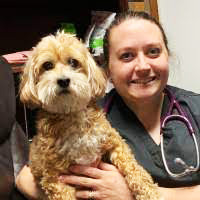
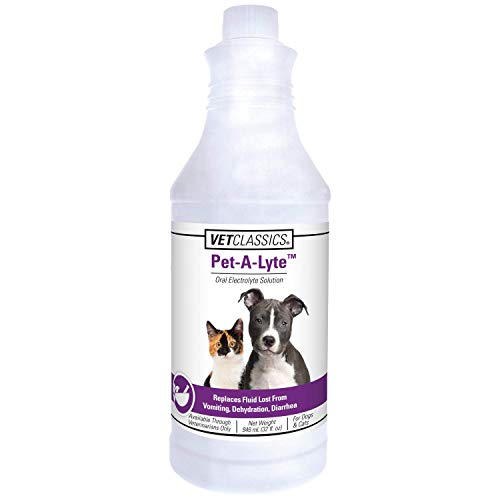


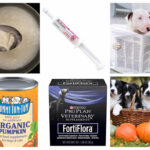









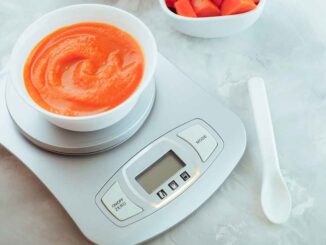
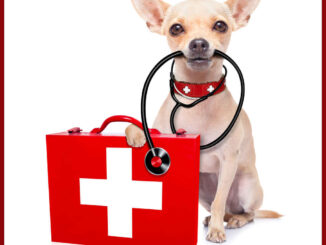
Be the first to comment